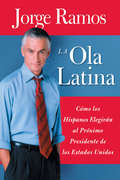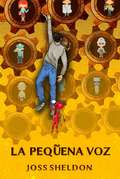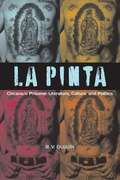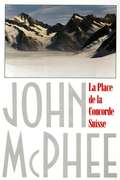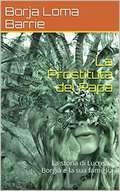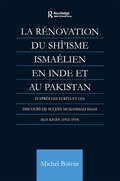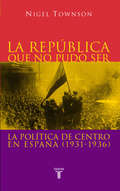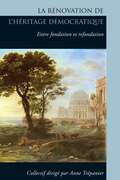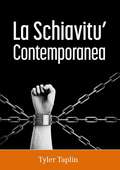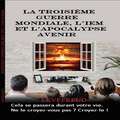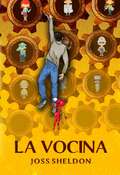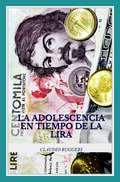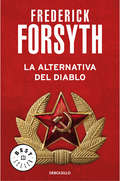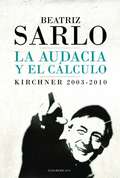- Table View
- List View
La Muerta y la Doncella
by Ariel DorfmanLa muerte y la doncella, la obra latinoamericana mas representada en la historia del mundo, ha llegado a constituirse en un clasico sobre la justicia y el perdon, la memoria y el olvido. Dorfman se ha propuesto a explorar preguntas pocas veces hechas en voz alta: "¿Como pueden los represores y los oprimidos cohabitar una misma tierra, compartir una misma mesa?" preguntas que hoy dîa siguen tan vigentes como cuando Dorfman escribia esta obra.
La Nieve Más Brillante Cae en la Oscuridad: Las Nuevas Aventuras de Lorewyn & Compañía, Libro 2 (Las Nuevas Aventuras de Lorewyn & Compañía #2)
by C. J. PearsonFaedrya, el reino ancestral de las hadas de Velyxi, la madre de Lorewyn y sus parientes que una vez hicieron de Cordysia su hogar, Lys'elth y Onarys. Un mundo hermoso y mágico, en gran parte intacto por el destino mortal. Pero el Oráculo Celestial, cuyo consejo ha guiado durante mucho tiempo a Faedrya a través de eras de paz, ahora está pasando más allá del tiempo y el espacio y ofrece sus últimas palabras de dirección para el reino antiguo y sus habitantes. Se elige un nuevo Árbitro, y el Oráculo ha dictado que el Mariscal del Norte, Nyvendra, debe ocupar el puesto. Las consecuencias no se parecen en nada que la gente de las hadas que jamás hayan visto, porque nadie de su región ha liderado el reino, y hay una feroz oposición de aquellos que desean que siga siendo así, y la lucha envuelve a Faedrya, incluso hasta el punto de un intento de asesinato de Nyvendra. Lorewyn, Rhianyn y Blythe llegan solo para encontrar un mundo que no coincide con el legado de la madre de Lorewyn, sino un mundo que corre el riesgo de ser destrozado. Las nuevas aventuras de Lorewyn and Company continúan con el libro 2, ¡La nieve más brillante cae en la oscuridad!
La Nostra Donna in Giamaica
by J. J. WardA volte i ballottaggi e i proiettili sono incompatibili …. Giamaica, 1980. Un’elezione generale è alle porte. Il Partito Popolare Nazionale di centro sinistra ha l’opportunità di vincere un terzo mandato di riforme sociali radicali. I legami con la Russia e con Cuba potrebbero essere rafforzati. All’IMF sarà mostrata la porta. Nuovi movimenti rivoluzionari, come i Sandinisti in Nicaragua, o il JRG ad El Salvador, saranno incoraggiati. I poteri che sono a Londra e a Washington non sono pronti a contenere nulla del genere. Per nulla. Sfortunatamente, l’unica persona disponibile per occuparsi della situazione è qualcuno che gli inglese preferirebbero non informare. A soli venticinque anni, Ruby Parker e l’MI6 hanno già una storia difficile. È stata già considerata irrecuperabile da quasi chiunque conti qualcosa nell’organizzazione.
La Ola Latina
by Jorge RamosEn La Ola Latina el reconocido escritor y galardonado periodista Jorge Ramos explora el impresionante crecimiento de los hispanos y analiza cómo los latinos estántransformando la economía, la cultura y la política de Estados Unidos. En los últimos años la población latina en Estados Unidos ha crecido de una manera extraordinaria, dándoles a los hispanos la posibilidad de influir de forma muy significativa en las elecciones y en la vida política del país. En las elecciones del 2004, por ejemplo, se espera que el voto latino sea un factor determinante en por lo menos diez estados que tienen más del 10 por ciento de población hispana, incluyendo a Nueva York, Texas, California, Florida e Illinois. Es imposible ignorar una influencia tan grande y un voto tan importante. Para muchos es difícil comprender que el cambio más dramático que está viviendo este país no tiene nada que ver con la guerra contra el terrorismo o con la economía; tiene que ver, simplemente, con la revolución demográfica impulsada por los latinos. Es la ola latina. En el 2002 los latinos se convirtieron, oficialmente, en el grupo minoritario más grande de Estados Unidos, superando los 38 millones de habitantes. La noticia sorprendió porque no se esperaba que esto ocurriera hasta, al menos, una década después. Este tipo de crecimiento presagia que los latinos tendrán un papel fundamental en el futuro de Estados Unidos y, particularmente, en la política. Todo tendrá que pasar por el filtro de los hispanos porque Estados Unidos se está latinizando. Si las tendencias no cambian, habrá más latinos que blancos no hispanos en el país el próximo siglo. Los latinos -- tanto los inmigrantes recién llegados como aquellos que nacieron en Estados Unidos -- están cambiando para siempre el tejido social y cultural de este país. En La Ola Latina , Ramos afirma que será aquel partido político que mejor comprenda los deseos y las necesidades de los hispanos que viven en este país, el que eventualmente ganará las próximas elecciones.
La Pequeña Voz
by Joss SheldonQuerido lector, Mi personaje ha sido moldeado por dos fuerzas opuestas; la presión de amoldarme a la normas sociales y la presión de ser mi mismo. Para ser honesto, estas fuerzas me han hecho trizas. Me han jalado de un lado para el otro. En algunos momentos me han dejado cuestionando mi existencia por completo. Pero por favor, no piense que estoy molesto o malhumorado. No lo estoy. Puesto que con la adversidad viene el conocimiento. He sufrido, es cierto, pero he aprendido de mi dolor. Me he convertido en mejor persona. Ahora, por primera vez, estoy listo para contar mi historia. Quizá le inspire, quizá lo anime a pensar de una manera completamente diferente. Quiza no suceda. Hay solo una forma de averiguarlo... Disfrute el libro, Yew Shodkin
La Petite Voix
by Laura Dinraths Joss SheldonLE BEST-SELLER #1 QUE LE SYSTÈME NE VEUT PAS QUE VOUS LISIEZ !!! Obtenez votre copie du nouveau roman rebelle de Joss Sheldon dès aujourd’hui… Cher lecteur, Mon caractère a été façonné par deux forces opposées ; la pression de me conformer aux normes sociales et celle d’être moi-même. Pour être franc, ces forces m’ont vraiment déchiré. Elles m’ont secoué d’un côté à l’autre. Parfois, elles m’ont poussé à remettre toute mon existence en question. Mais ne pensez pas que je sois fâché ou morose. Ce n’est pas le cas. Parce que l’adversité mène à la connaissance. Il est vrai que j’ai souffert. Mais ma douleur m’a appris bien des choses. Je suis devenu une meilleure personne. Maintenant, pour la première fois, je suis prêt à raconter mon histoire. Peut-être qu’elle vous inspirera. Peut-être qu’elle vous encouragera à penser autrement. Peut-être pas. Il n’y a qu’une manière de le découvrir… J’espère que vous apprécierez ce livre, Yew Shodkin Psychologique, radical et irrésistible ; La Petite Voix vous poussera à douter de tout ce que vous tenez pour acquis. Un vrai classique en devenir. « Le roman de 2016 qui donne le plus à réfléchir » - The Huffington Post « Radical… Iconique… Excellentissime… » - Le Canary « Formidable » - Global Education Network « Une prouesse assez remarquable » - BuzzFeed ACHETEZ VOTRE COPIE SANS PLUS ATTENDRE !!!
La Pinta: Chicana/o Prisoner Literature, Culture, and Politics
by B. V. OlguínIn this groundbreaking study based on archival research about Chicana and Chicano prisoners—known as Pintas and Pintos—as well as fresh interpretations of works by renowned Pinta and Pinto authors and activists, B. V. Olguín provides crucial insights into the central roles that incarceration and the incarcerated have played in the evolution of Chicana/o history, cultural paradigms, and oppositional political praxis.<P><P>This is the first text on prisoners in general, and Chicana/o and Latina/o prisoners in particular, that provides a range of case studies from the nineteenth century to the present. Olguín places multiple approaches in dialogue through the pairing of representational figures in the history of Chicana/o incarceration with specific themes and topics. Case studies on the first nineteenth-century Chicana prisoner in San Quentin State Prison, Modesta Avila; renowned late-twentieth-century Chicano poets Raúl Salinas, Ricardo Sánchez, and Jimmy Santiago Baca; lesser-known Chicana pinta and author Judy Lucero; and infamous Chicano drug baron and social bandit Fred Gómez Carrasco are aligned with themes from popular culture such as prisoner tattoo art and handkerchief art, Hollywood Chicana/o gangxploitation and the prisoner film American Me, and prisoner education projects.
La Place De La Concorde Suisse
by John McpheeJohn McPhee embeds himself in a "Section de Renseignements" (military intelligence) of the Swiss Army. This army is more like what we in the U.S. would call the National Guard. Every male Swiss serves in the army for 30 years, but except for an annual 3-week refresher course, lives a normal life (although subject to mobilization within 48 hours at need). McPhee's talent for interviewing his subjects, salting his narrative with history, geography, and even geology, makes this a very informative as well as entertaining book. NOTE: There are a considerable number of French (and some German) words and phrases in this book While it isn't necessary to know French to understand those words and phrases, some knowledge of French would not hurt,
La Prostituta del Papa
by Borja Loma Barrie Charlotte ErreraRomanzo storico. Biografia di Lucrezia Borgia. La storia della famiglia Borgia. La conquista d'Italia dalla Spagna. Il grande Capitano e gli Terzi. Papa Alessandro VI. Le guerre civili
La Renovation du Shi'isme Ismaelien En Inde Et Au Pakistan: D'apres les Ecrits et les Discours de Sultan Muhammad Shah Aga Khan
by Michel BoivinThis French-language book is the first to propose a scientific approach to the Aga Khan's religious thought, placing it in its proper perspective by revealing how the Aga Khan responded to contemporary challenges. It will be of interest to both students and scholars of history, orientalism and Islamic thought and cultures, and to anyone interested in South Asia or in the fundamental issues of religion and modernity.
La República que no pudo ser: La política de centro en España (1931-1936)
by Nigel TownsonEste libro enfoca desde una nueva perspectiva uno de los capítulos más importantes de nuestra historia y cubre un vacío fundamental en la historiografía de este periodo. Frente a la tan manida idea de las dos Españas, Nigel Townson nos ofrece un deslumbrante análisis de las causas que originaron la Guerra Civil española, destacando la actuación del Partido Republicano Radical, representante de la política centrista. Apoyándose en el Archivo de la Guerra Civil y documentos inéditos hasta ahora de Alejandro Lerroux, entre otros, esta obra arroja nueva luz sobre los acontecimientos previos al conflicto, en especial a la «Sanjurjada» de 1932, las crisis políticas del año siguiente, el rol de la masonería, el escándalo del estraperlo y la alianza del centro y la derecha que dominó España entre 1933 y 1935.
La Rénovation de l'héritage démocratique: Entre fondation et refondation
by Anne TrépanierLes expressions politiques du Québec et du Canada donnent l’impression d’une quête identitaire perpétuelle. L’obsession du moi est passée du « je » au « nous ». Ce collectif pluridisciplinaire donne une portée philosophique et historique à la question du renouveau démocratique au Québec et au Canada. La tension entre les identités citoyennes et les identités des groupes exige l’émergence ou la renaissance d’un référent politique collectif et invite à la reformulation du credo identitaire, à la rénovation de l’héritage commun. Cet ouvrage examine la nature de ce mouvement de refondation et regarde comment le groupe est convié à participer à cet exercice de se nommer. Publié en français
La Révolution Végane: Pourquoi et comment nous nous dirigeons vers la prochaine étape de l'Histoire
by Joseph de la Paz Sophia BisstouaneLe véganisme, vous intéresse-il ? Vous sentez-vous concerné par le sort des animaux ? La situation dans le monde, vous préoccupe-t-elle ? Voulez-vous savoir pourquoi le véganisme est le phénomène le plus important de notre époque ? Souhaitez-vous savoir de quelle manière le monde est en train de changer ? Dans ce livre passionnant et surprenant, vous découvrirez : •l'ensemble des raisons et des avantages pour lesquels de plus en plus de personnes s'intéressent au véganisme •des données scientifiques sur la santé, la psychologie, la sociologie, l'économie, la biologie et l'écologie •pourquoi le véganisme est plus qu'un régime alimentaire et plus qu'une philosophie •comment évolue notre perception de la santé publique, des droits des animaux et de l'écologie •comment le véganisme se développe dans le monde •une vision de l'avenir végane qui nous attend « Il n'y a rien de plus puissant au monde qu'une idée dont l’heure est venue » (Victor Hugo) « Ce livre est né afin de formuler, de présenter les arguments et les données, de la profonde conviction interne partagée par les millions d’autres véganes à travers le monde. Ceci est le chemin à suivre et il n'y a pas de marche arrière possible » (Joseph de la Paz) Après les travaux de Peter Singer, de Gary Francione, de Will Tuttle et de Melanie Joy, arrive cette magnifique exposition de ce que le véganisme peut signifier pour l'humanité. Découvrez le lien entre la libération animale, la libération humaine et la libération de la planète. Joseph de la Paz (Barcelone, 1973) est un éducateur et un militant, ayant fait des études supérieures en sciences politiques, sociologie, psychologie et nutrition. Il est marié et père de deux filles. Co-fondateur du tout récent Parti Végane en Israël, musicien et voyage
La Schiavitu Contemporanea
by Tyler Taplin Maria Grazia PozziUno sguardo alla schiavitù nella società contemporanea in un'ottica neutrale, oggettiva. Siamo inclini a pensare che la schiavitù appartenga al passato, questo libro mostra chiaramente che non è così. Il testo spiega e chiarisce le diverse forme di schiavitù presenti nella società attuale e in che modo le persone diventano schiavi. La tratta di esseri umani è proprio sotto i nostri occhi, ma non si vede. Leggendo queste pagine capirete come funziona il traffico di esseri umani e perché passa del tutto inosservato.
La Troisième Guerre Mondiale, l'IEM et l'Apocalypse avenir: Cela se passera durant votre vie. Ne le croyez-vous pas ? Croyez-le !04/17/22 07:12
by Levi FreudCe livre parle de l'impensable. Quelque chose que la plupart des gens ne croient pas arriver, ou que ce n'est qu'une menace d'il y a longtemps, comme regarder un film en noir et blanc sur les guerres d'il y a longtemps. Avec leurs promenades mécaniques à l'air maladroit et leurs vêtements et leur technologie à l'air bizarre. Ce livre explore l'effondrement à moitié simulé de l'Union soviétique. Et la montée secrète de leur haine, et les préparatifs de guerre massifs contre l'ouest. Les Américains sont complètement inconscients des préparatifs secrets d'une attaque surprise planifiée sur l'ouest. Malheureusement, j'ai vu ces préparatifs et ces plans dans les coulisses. Et je vous dis que la troisième guerre mondiale va se produire dans 10 à 15 ans. Et si vous ne me croyez pas. CROYEZ-LE!
La Verdad: A Witness to the Salvadoran Martyrs
by Lucia Cerna Mary Jo IgnoffoA firsthand account of the El Salvador martyrdoms and the process of resettling in the United States by Lucia Cerna, a housekeeper at the UCA, through transcribed interviews; also an academic and politically adept reading of El Salvador's history and the vagaries of the American immigration system by a local scholar and professor.
La Vida: A Puerto Rican Family in the Culture of Poverty--San Juan and New York
by Oscar LewisLA VIDA, A Puerto Rican Family in the Culture of Poverty--San Juan and New York by Oscar Lewis
La Vocina.: Una Storia Ribelle.
by Joss SheldonLa vocina è una storia per chi sente che qualcosa non va. Per chi vorrebbe gridare ma si tiene tutto dentro. Per chi non sa se dare ascolto a Egot, quella vocina ribelle che non sta mai zitta, fino a che non l'ammazza. Sheldon descrive in maniera comunicativa e con un tono poetico le emozioni e i pensieri di una vita ordinaria eppure anormale, normale eppure ingiusta, comune eppure sbagliata. Un flusso di pensieri che ti prende e ti coinvolge dalla prima all'ultima pagina.
La adolescencia en tiempo de la lira
by Claudio Ruggeri Jelmer Alexander de Kok BernatEl encuentro de dos amigos una tarde de verano, en el cual el más jóven escuchará las anécdotas del otro de un mundo ya desaparecido y que no volverá a existir, en el que se escuchaba mucho la frase "No tengo una lira".
La agente nazi Eva Perón y el tesoro de Hitler: Los archivos desclasificados del FBI de Hoover. La trama de acuerdos y traiciones entre la Alemania nazi y la Argentina de Juan Domingo Perón
by Marcelo Damian GarcíaUn recorrido por las relaciones entre Juan Domingo Perón, Eva Duarte y el nazismo alemán tras la derrota, avalado por las investigaciones que mandó a realizar Hoover al frente del FBI. Con la debacle nazi consumada, el tablero de la política internacional comienza a reacomodarse. Mientras Adolf Hitler, en el exilio, pierde fuerza e influencia, Juan Domingo Perón -alentado por las circunstancias- se propone erigir a la Argentina como una nación rectora de Sudamérica, tomando la posta de la derrotada Alemania e intentando replicar su ímpetu expansionista en la región. ¿Cómo pretende Perón financiar sus planes de dominación? Mediante el expolio de las millonarias fortunas que fueron secuestradas por el nacionalsocialismo alemán y pacientemente trasladadas hasta Buenos Aires. Su mayor obstáculo será nadie menos que su propia esposa, Eva Duarte, quien pondrá en acción sus poderosas conexiones para salvaguardar esos tesoros. La agente nazi Eva Perón y el tesoro de Hitler nace del trabajo de investigación y consulta de cientos de documentos desclasificados -entre ellos, los de las pesquisas que mandó a hacer John Edgar Hoover cuando se encontraba al frente del FBI-, sobre los cuales el historiador Marcelo García construye una irresistible tesis destinada a entrelazar la inesperada y atrapante trama internacional de acuerdos y traiciones entre la Alemania nazi y la Argentina de Perón. El resultado de este enorme trabajo es un libro que revisa uno de los misterios más magnéticos del peronismo desde una perspectiva nueva: la de los conflictos de intereses entre sus dos más grandes figuras.
La alternativa del diablo
by Frederick ForsythEn la Unión Soviética se da una mala cosecha de cereal y en Ucrania se manifiestan inquietudes nacionalistas. Y esta es la punta del iceberg que puede conducir a un choque frontal entre las dos superpotencias mundiales durante la guerra fría. Frederick Forsyth exhibe en esta obra sus mejores cualidades de novelista. La trama, elaborada y apasionante, mezcla política internacional, amor, nacionalismo y una galería de personajes redondos y convincentes. «Forsyth ha sabido combinar una vez más la realidad y la ficción para crear una dinámica y una atmósfera que mantienen el ánimo ensuspenso.» La Vanguardia
La arquitectura del mal
by José Manuel VegaUn directivo insaciable, una elegante madame, una consejera corrupta, un retorcido aristócrata... En los círculos de poder de Madrid se está gestando un peligroso juego de dinero, sexo y mentiras en el que cualquiera puede ser víctima o verdugo. Carlos Mir es un candidato a suceder al presidente de una de las grandes tecnológicas españolas. Cuando descubre que otro directivo aspira al cargo, inicia una serie de oscuras maniobras para eliminar a cualquiera que se interponga en su camino. Pero todo explota en el momento más inesperado cuando aparece un cadáver con unas misteriosas siglas grabadas en el vientre. El comisario Manuel Villacampa iniciará una investigación contrarreloj para averiguar qué ha sucedido. Inspirado en hechos reales, La arquitectura del mal es un trepidante thriller pegado a la actualidad sobre la corrupción en las altas esferas empresariales y políticas. Una novela provocadora donde es difícil separar la realidad de la ficción.
La audacia de la esperanza
by Barack ObamaEn La audacia de la esperanza, el senador demócrata Barack Obama reclama una política diferente--una política para quienes están cansados del agrio partidismo, una política que se basa en la fe, la participación de todos y la nobleza de espíritu que es parte esencial de "nuestro improbable proyecto de democracia". En el corazón de este libro está la visión del senador Obama de cómo podemos superar nuestras divisiones para enfrentar los problemas concretos. Él examina la creciente inseguridad económica de las familias estadounidenses, las tensiones raciales y religiosas dentro del cuerpo político y las amenazas transnacionales--desde el terrorismo hasta las pandemias--que se congregan más allá de nuestras costas. En sus anécdotas acerca de su familia, amigos, miembros del Senado y hasta del presidente, existe un poderoso deseo de establecer conexiones: la plataforma de un consenso político radicalmente optimista.Como senador y abogado, profesor y padre, cristiano y escéptico, y sobre todo como estudioso de la historia y de la naturaleza humana, el senador Obama ha escrito un libro de un poder transformador.From the Trade Paperback edition.
La audacia de la esperanza
by Barack ObamaEn La audacia de la esperanza, el senador demócrata Barack Obama reclama una política diferenteuna política para quienes están cansados del agrio partidismo, una política que se basa en la fe, la participación de todos y la nobleza de espíritu que es parte esencial de nuestro improbable proyecto de democracia. En el corazón de este libro está la visión del senador Obama de cómo podemos superar nuestras divisiones para enfrentar los problemas concretos. Él examina la creciente inseguridad económica de las familias estadounidenses, las tensiones raciales y religiosas dentro del cuerpo político y las amenazas transnacionalesdesde el terrorismo hasta las pandemiasque se congregan más allá de nuestras costas. En sus anécdotas acerca de su familia, amigos, miembros del Senado y hasta del presidente, existe un poderoso deseo de establecer conexiones: la plataforma de un consenso político radicalmente optimista. Como senador y abogado, profesor y padre, cristiano y escéptico, y sobre todo como estudioso de la historia y de la naturaleza humana, el senador Obama ha escrito un libro de un poder transformador.
La audacia y el cálculo: Kirchner 2003-2010
by Beatriz Sarlo«Si alguien busca un panfleto, no lo encontrará en este libro», avisaBeatriz Sarlo a poco de comenzar, advertencia que cobra la fuerza de unarevelación con el correr de las páginas. A Kirchner lo define un hazcontradictorio: concentración, velocidad e inteligencia; tenacidad,conocimiento e impericia; fortuna y sangre fría; mezquindad con laoposición, sectarismo, encierro. Despótico, decidido, autoritario, valiente, rápido, ambicioso, sectario,inteligente, hipócrita... Los adjetivos pueden apilarse sobre eldifunto ex presidente pero, antes de calificar, Sarlo prefiere relatarlos hechos, revisarlos desde el mismo comienzo, como el mejor modo decomprenderlos. De qué manera Kirchner construyó poder -la multiplicaciónde la fortuna personal como garantía de que, incluso perdiendoelecciones, siempre estaría armado para volver-, ganó porciones del PJ einspiró un raro misticismo en los progresistas. Gran calculador y sinembargo audaz, peleó todas las batallas e ignoró el retroceso. «Hay detodo en estos años. Episodios de corrupción funambulesca; uso delpresupuesto nacional y de los planes asistenciales para mantener lalealtad territorial de jefes políticos o sociales; cooptación y manodura, adulaciones y ninguneos, peleas y reconciliaciones; un aparato dereparto de recursos que pasa por encima de las autonomías provinciales;la inflación disfrazada por razones políticas, lo que implica ignorarla pobreza que genera; el apoyo a la ciencia y la tecnología y, ensentido opuesto, la destrucción del INDEC. También hay que incorporar albalance el equilibrio presupuestario, la afirmación de la soberanía enla toma de decisiones, la amistad con Chávez pero también con España,Chile y Brasil; la política de derechos humanos respecto del pasado».



